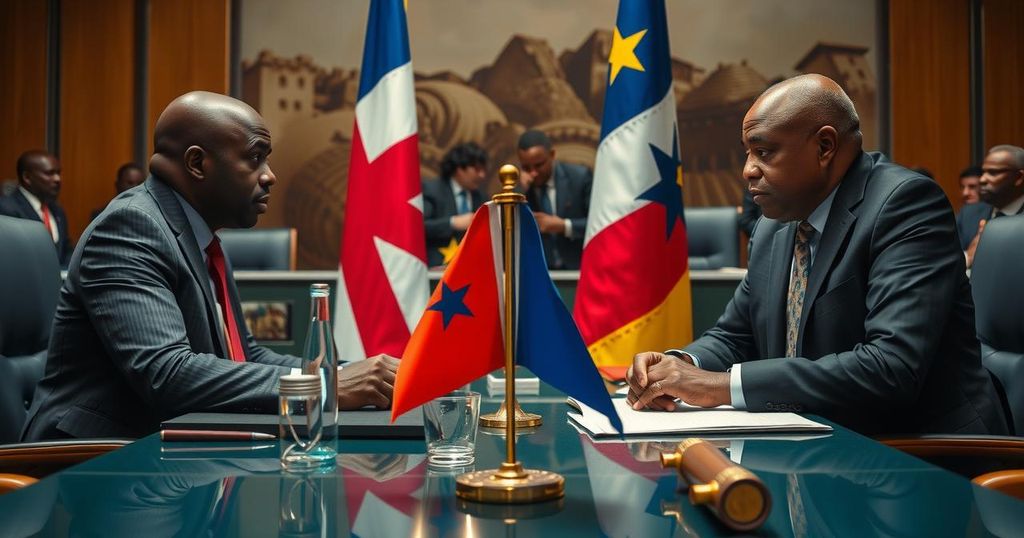Peace talks between Rwanda and the DRC aimed at resolving eastern DRC’s conflict have been canceled due to a deadlock over Rwandan demands for direct dialogue with the M23 rebels. Although Angolan President Joao Lourenco engaged with DRC President Felix Tshisekedi, Rwandan President Paul Kagame’s attendance was uncertain. The ongoing violence and humanitarian crisis continue to complicate peace efforts, highlighting an urgent need for dialogue.
Peace negotiations between Rwanda and the Democratic Republic of the Congo (DRC) aimed at resolving the ongoing conflict in the eastern DRC have encountered a significant setback, as announced by the Angolan presidency, which has been mediating these discussions. Despite initial expectations for a summit to take place, it was suddenly called off, with media officer Mario Jorge revealing the abrupt change without providing specific reasons for the cancellation. Angolan President Joao Lourenco, serving as the mediator on behalf of the African Union, engaged in discussions exclusively with DRC President Felix Tshisekedi, as Rwandan President Paul Kagame’s presence remained unclear.
The deteriorating situation in eastern DRC has heightened concerns, particularly as violence escalated days prior to the talks, resulting in accusations from the DRC army against the M23 rebel group—a faction allegedly supported by Rwanda—of civilian casualties. While M23 has dismissed these claims as government propaganda, the atmosphere of mistrust continues to hinder peace efforts. The DRC has been grappling with one of the most severe humanitarian crises worldwide, with over seven million people displaced due to ongoing violence.
Rwanda has consistently denied any affiliations with the M23, although it acknowledged its military presence in the eastern DRC for security purposes. A recent UN report suggests a substantial number of Rwandan Defence Force members are actively supporting M23 combatants. Despite previous ceasefire agreements, tensions have persisted, provoking international concern regarding the stability of the region and the necessity for immediate dialogue to mitigate the humanitarian disaster affecting daily lives.
The conflict in the eastern Democratic Republic of the Congo has deeply affected the region, with multiple armed groups competing for control over its rich mineral resources. The M23 rebel group has been a key player, with allegations of backing from Rwanda, leading to a complex web of political and military tensions. Recent efforts to mediate peace negotiations have involved the Angolan presidency, acting under the auspices of the African Union. However, the negotiations have faced roadblocks, particularly regarding the DRC’s reluctance to engage directly with the M23 rebels, complicating the path toward a sustainable resolution.
In summary, the cancellation of peace talks between Rwanda and the DRC underscores the complexities surrounding the ongoing conflict in eastern DRC, exacerbated by accusations of violence and humanitarian crises. The presence of external forces and the intertwined political relationships continue to impede progress towards stability. The urgent need for constructive dialogue remains paramount, as millions of civilians face the devastating consequences of prolonged instability.
Original Source: www.aljazeera.com







